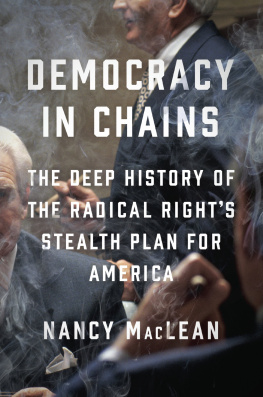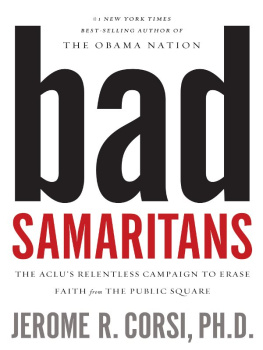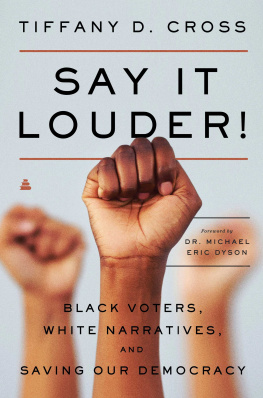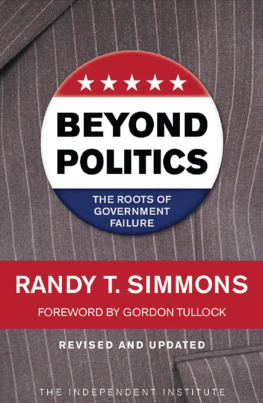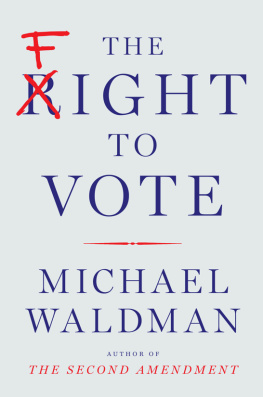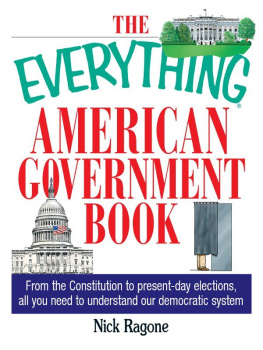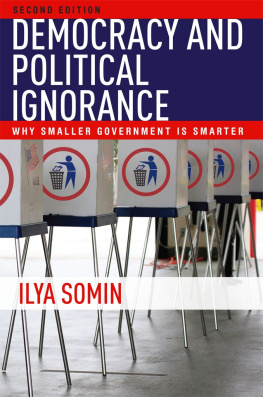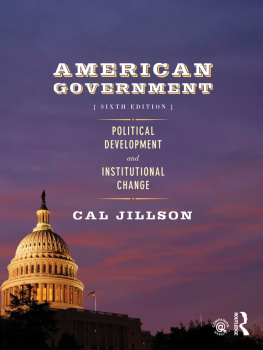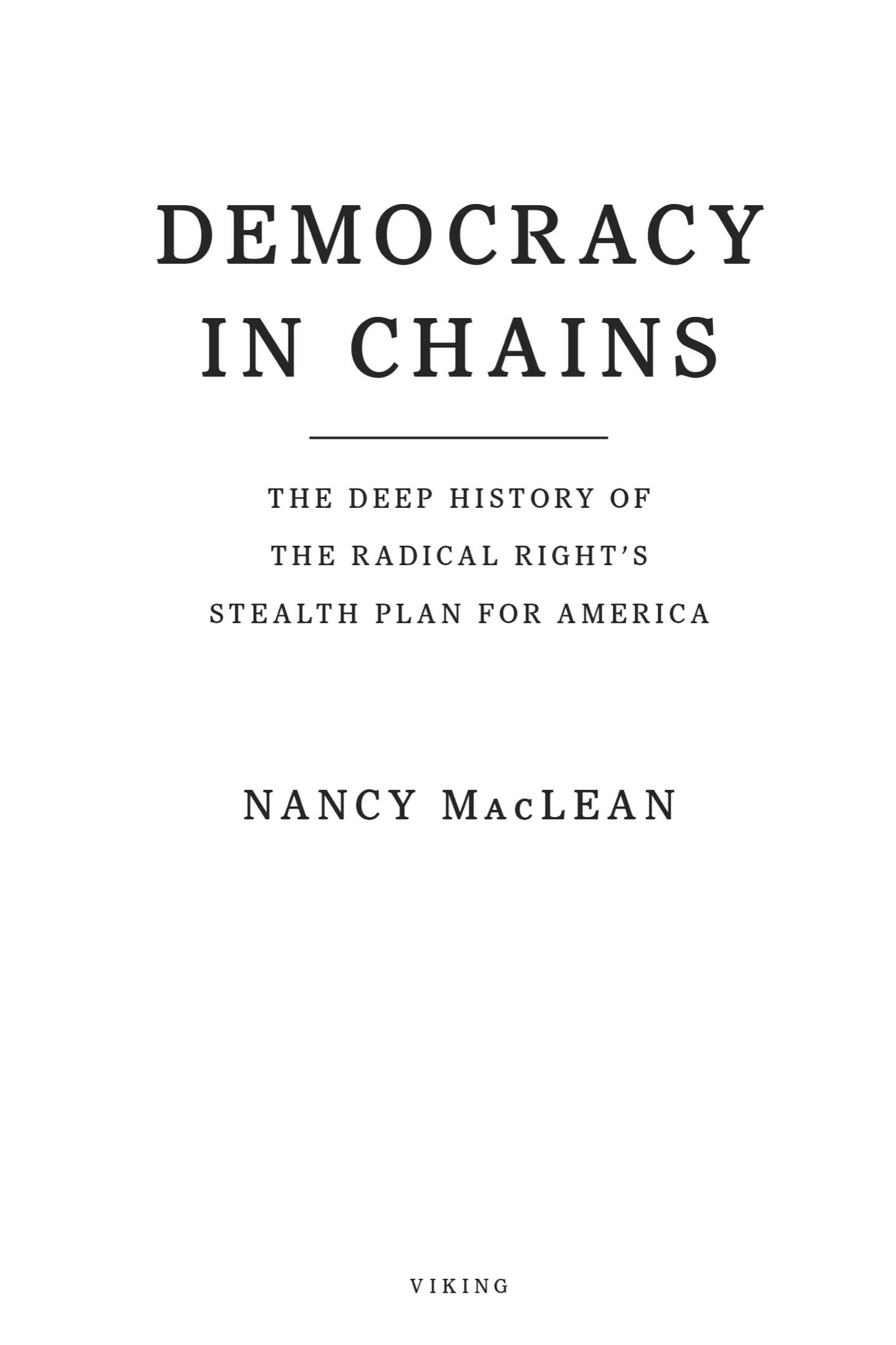Penguin supports copyright. Copyright fuels creativity, encourages diverse voices, promotes free speech, and creates a vibrant culture. Thank you for buying an authorized edition of this book and for complying with copyright laws by not reproducing, scanning, or distributing any part of it in any form without permission. You are supporting writers and allowing Penguin to continue to publish books for every reader.
The public choice revolution rings the death knell of the political we.
INTRODUCTION
A QUIET DEAL IN DIXIE
As 1956 drew to a close, Colgate Whitehead Darden Jr., the president of the University of Virginia, feared for the future of his beloved state. The previous year, the U.S. Supreme Court had issued its second Brown v. Board of Education ruling, calling for the dismantling of segregation in public schools with all deliberate speed. In Virginia, outraged state officials responded with legislation to force the closure of any school that planned to comply. Some extremists called for ending public education entirely. Darden, who earlier in his career had been the governor, could barely stand to contemplate the damage such a rash move would inflict. Even the name of this plan, massive resistance, made his gentlemanly Virginia sound like Mississippi.
On his desk was a proposal, written by the man he had recently appointed chair of the economics department at UVA. Thirty-seven-year-old James McGill Buchanan liked to call himself a Tennessee country boy. But Darden knew better. No less a figure than Milton Friedman had extolled Buchanans potential. As Darden reviewed the document, he might have wondered if the newly hired economist had read his mind. For without mentioning the crisis at hand, Buchanans proposal put in writing what Darden was thinking: Virginia needed to find a better way to deal with the incursion on states rights represented by Brown.
To most Americans living in the North, Brown was a ruling to end segregated schoolsnothing more, nothing less. And Virginias response was about race. But to men like Darden and Buchanan, two well-educated sons of the South who were deeply committed to its model of political economy, Brown boded a sea change on much more.
At a minimum, the federal courts could no longer be counted on to defer reflexively to states rights arguments. More concerning was the likelihood that the high court would be more willing to intervene when presented with compelling evidence that a state action was in violation of the Fourteenth Amendments guarantee of equal protection under the law. States rights, in effect, were yielding in preeminence to individual rights. It was not difficult for either Darden or Buchanan to imagine how a court might now rule if presented with evidence of the state of Virginias archaic labor relations, its measures to suppress voting, or its efforts to buttress the power of reactionary rural whites by underrepresenting the moderate voters of the cities and suburbs of Northern Virginia. Federal meddling could rise to levels once unimaginable.
James McGill Buchanan was not a member of the Virginia elite. Nor is there any explicit evidence to suggest that for a white southerner of his day, he was uniquely racist or insensitive to the concept of equal treatment. And yet, somehow, all he saw in the Brown decision was coercion. And not just in the abstract. What the court ruling represented to him was personal. Northern liberalsthe very people who looked down upon southern whites like him, he was surewere now going to tell his people how to run their society. And to add insult to injury, he and people like him with property were no doubt going to be taxed more to pay for all the improvements that were now deemed necessary and proper for the state to make. What about his rights? Where did the federal government get the authority to engineer society to its liking and then send him and those like him the bill? Who represented their interests in all of this? I can fight this, he concluded. I want to fight this.
Find the resources, he proposed to Darden, for me to create a new center on the campus of the University of Virginia, and I will use this center to create a new school of political economy and social philosophy. It would be an academic center, rigorously so, but one with a quiet political agenda: to defeat the perverted form of liberalism that sought to destroy their way of life, a social order, as he described it, built on individual liberty, a term with its own coded meaning but one that Darden surely understood. The center, Buchanan promised, would train a line of new thinkers in how to argue against those seeking to impose an increasing role of government in economic and social life.
He could win this war, and he would do it with ideas.
While it is hard for most of us today to imagine how Buchanan or Darden or any other reasonable, rational human being saw the racially segregated Virginia of the 1950s as a society built on the rights of the individual, no matter how that term was defined, it is not hard to see why the Brown decision created a sense of grave risk among those who did. Buchanan fully understood the scale of the challenge he was undertaking and promised no immediate results. But he made clear that he would devote himself passionately to this cause.
Some may argue that while Darden fulfilled his parthe found the money to establish this centerhe never got much in return. Buchanans team had no discernible success in decreasing the federal governments pressure on the South all the way through the 1960s and 70s. But take a longer viewfollow the story forward to the second decade of the twenty-first centuryand a different picture emerges, one that is both a testament to Buchanans intellectual powers and, at the same time, the utterly chilling story of the ideological origins of the single most powerful and least understood threat to democracy today: the attempt by the billionaire-backed radical right to undo democratic governance.
For what becomes clear as the story moves forward decade by decade is that a quest that began as a quiet attempt to prevent the state of Virginia from having to meet national democratic standards of fair treatment and equal protection under the law would, some sixty years later, become the veritable opposite of itself: a stealth bid to reverse-engineer all of America, at both the state and the national levels, back to the political economy and oligarchic governance of midcentury Virginia, minus the segregation.
Alas, it wasnt until the early 2010s that the rest of us began to sense that something extraordinarily troubling had somehow entered American politics. All anyone was really sure of was that every so often, but with growing frequency and in far-flung locations, an action would be taken by governmental figures on the radical right that went well beyond typical party politics, beyond even the extreme partisanship that has marked the United States over the past few decades. These actions seemed intended in one way or another to reduce the authority and reach of government or to diminish the power and standing of those calling on government to protect their rights or to provide for them in one way or another.

